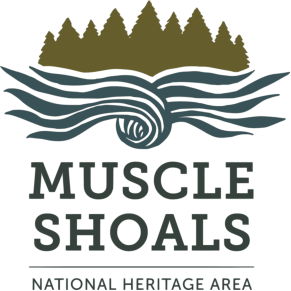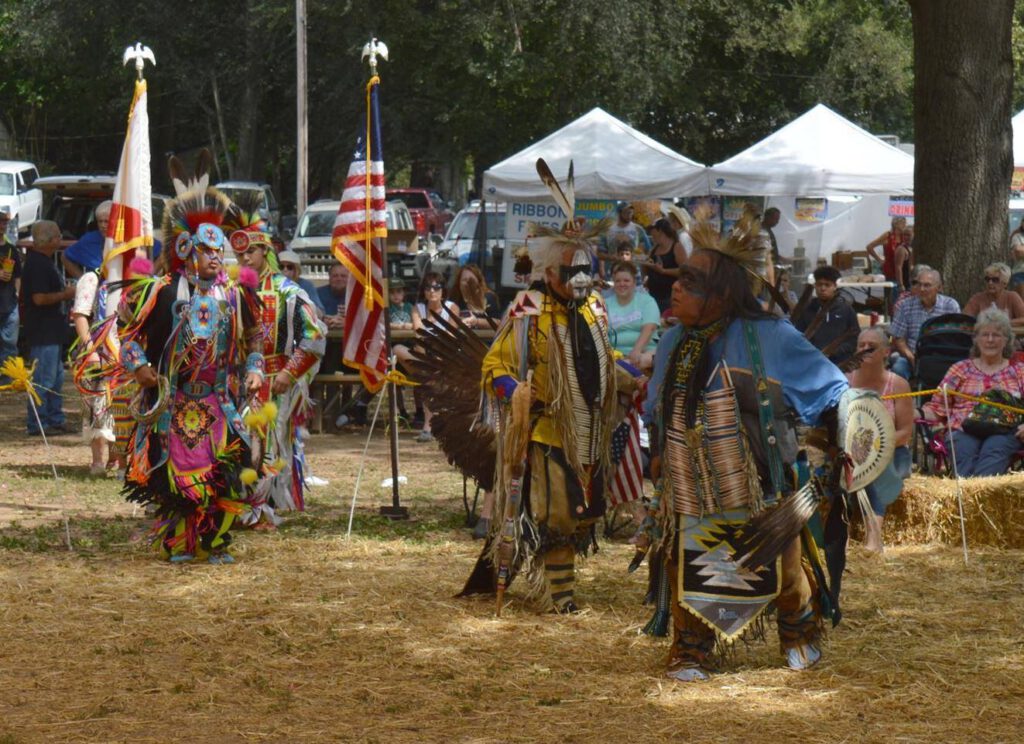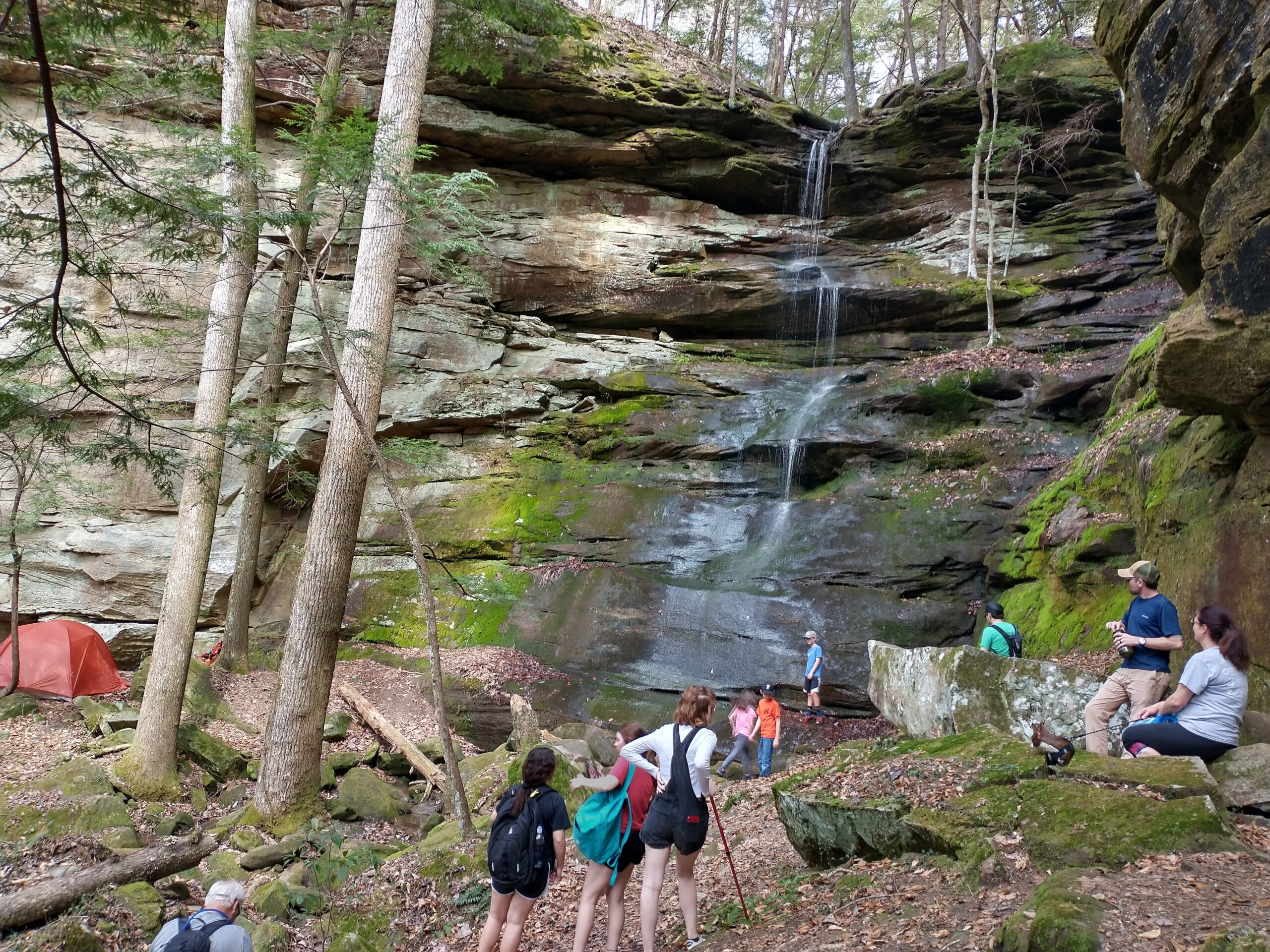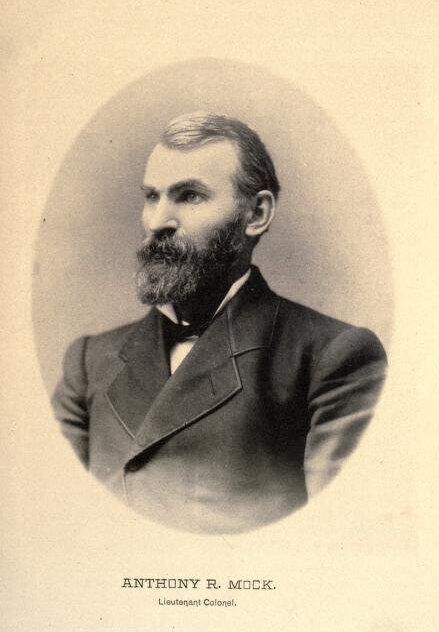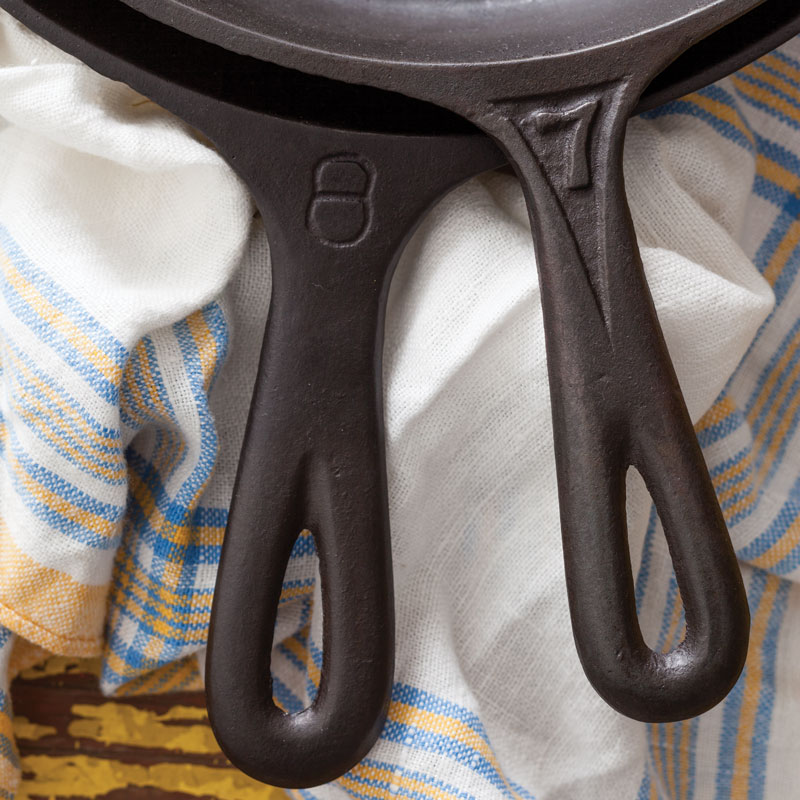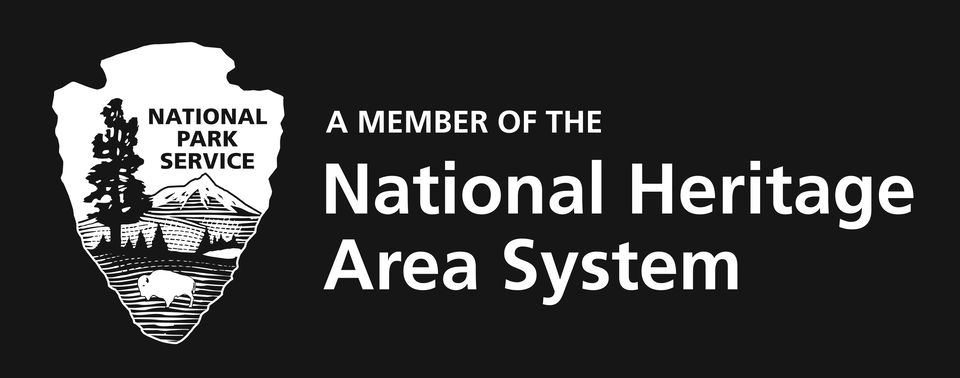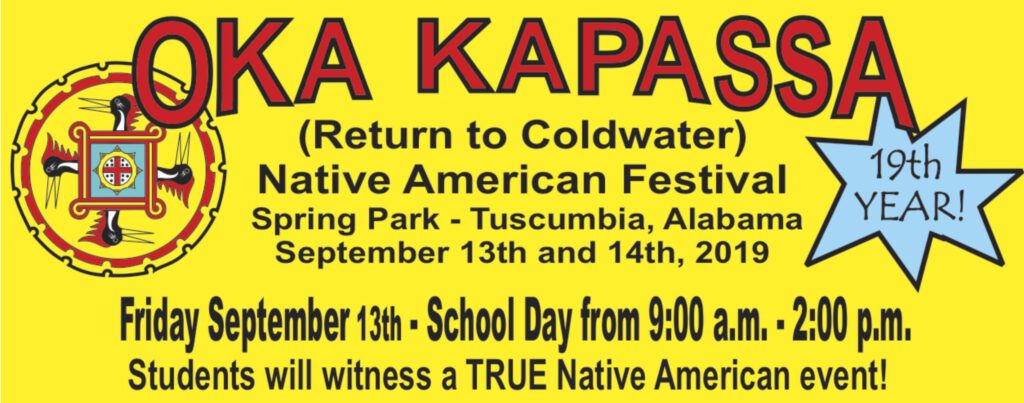 By Seth Armstrong
By Seth Armstrong
MSNHA Native American Heritage Consultant

Spring Park returns to its roots as a place of gathering for Native Americans and Alabamians during the annual Oka Kapassa Festival–a two-day event in September celebrating Native American tribes originally from the Southeast and other areas of the United States.
In Chickasaw, Oka Kapassa means “cold water,” and the name referred to the cold water bubbling up from the spring near the original Tuscumbia settlement. Since its beginning, Spring Park has been tied to the origins of Tuscumbia and the Native Americans living in Alabama. The Dickson family that floated up Spring Creek from its mouth on the Tennessee landed at the site of Spring Park in 1815 nd came into contact with the Chickasaw living in the area. Eventually, white Euro-Americans created a permanent settlement near the spring and called it “Occocopoosa” after the Chickasaw name. In 1819, the settlers renamed their town “Tuscumbia” after the Chickasaw leader Tashkambi, who sold the land that Tuscumbia is built on to the Dickson family.
After the Creek War, the federal government began systematically forcing Native Americans out of the southeastern United States, culminating in the Indian Removal Act that dictated they be moved to the Oklahoma Territory. Some Native Americans in the Southeast decided to not wait on the federal government to force them from their homes with no possessions and left before the Indian Removal Act passed. Several of these groups passed through Tuscumbia on their way to Oklahoma before 1830. The natives who removed 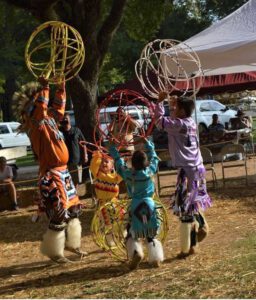 themselves packed their belongings into wagons, carts & anything that could carry their household items and set out on foot for Oklahoma. The first group that passed through Tuscumbia, in November, 1827, included 736 Creeks. Led by William Chillicothe “Chilley” McIntosh, the party stayed in Tuscumbia for five days. McIntosh describer his treatment in Tuscumbia:
themselves packed their belongings into wagons, carts & anything that could carry their household items and set out on foot for Oklahoma. The first group that passed through Tuscumbia, in November, 1827, included 736 Creeks. Led by William Chillicothe “Chilley” McIntosh, the party stayed in Tuscumbia for five days. McIntosh describer his treatment in Tuscumbia:
“On our way to our location, west of Mighty river, we stopped and stationed ourselves at Harpersville in the state of Alabama…. We received no hospitality from the citizens of that place …we did not enjoy any peace until we came down the mountain; then we marched along with peace and harmony – passed through many villages, and arrived at Tuscumbia, where we encamped for a few days, intending to take boats down the waters of the Tennessee, and so on to Mighty river. Here we have remained several days and have received all kind of hospitality and good treatment. The citizens of Tuscumbia have treated us like brothers, and our old helpless women were furnished by the good women of the town with clothing. On Tuesday the 29th of November, the law of our Great Father above was explained to us; and our people were glad to hear it. As long as our nation remains upon this earth, we will recollect Tuscumbia.”

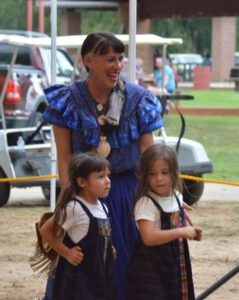 Almost 10 years later, the federal government removed three separate groups of Cherokee natives from the southeast U.S. totaling 2,300 individuals, using the Tennessee River. Escorted by the U.S. Army, these groups of Cherokee camped overnight at Spring Park while waiting for their boat to Memphis and on to Oklahoma.
Almost 10 years later, the federal government removed three separate groups of Cherokee natives from the southeast U.S. totaling 2,300 individuals, using the Tennessee River. Escorted by the U.S. Army, these groups of Cherokee camped overnight at Spring Park while waiting for their boat to Memphis and on to Oklahoma.
As Tuscumbia gathers for the Oka Kapassa Festival this year, we remember McIntosh’s words: “As long as our nation remains upon this earth, we will recollect Tuscumbia.” The festival is a return to Coldwater and is meant to remember and honor the ones who came to Tuscumbia almost 100 years ago. Not only will we recollect Tuscumbia but recollect the sacrifice and bravery of those who walked the Tail of Tears and never returned. Friday-Saturday, Sept. 13-14 , is the 19th year of the Oka Kapassa Festival. Friday is School Day, when 1,000 school children see demonstrations of tomahawk throwing, storytelling, ceremonial dancing, music, cooking, stickball and other aspects of Native American life. Admission is free both days.
Come out, celebrate and learn about Native American culture with Oka Kapassa Festival.
Seth Armstrong is the Native American heritage consultant for the Muscle Shoals National Heritage Area. He’s dedicated to preserving Native American history & helping to provide Native Americans a platform to tell their story.
